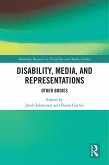Published over twenty years ago, Regina G. Lawrence's
The Politics of Force was the first scholarly book to look at the way in which media coverage of unexpected, dramatic events shaped public consciousness about important social and political problems. At a time when police brutality was rarely discussed in the news, Lawrence examined police use of force in over 500 incidents, with an in-depth look at the Rodney King case. In doing so, she showed that when incidents of police brutality became news, they offered one of the few real opportunities for marginalized voices and activists to find a public platform and take on the powerful. In the intervening years, the empirical and theoretical contributions of
The Politics of Force have become more significant, not only because police brutality is back in the news, but because the media system itself has changed. In this updated edition, Lawrence contextualizes and extends these contributions, while including a closer look at race and racial justice in incidents of police use of force. Reflecting on the context in which the book was written--a time when race and policing received limited coverage in the news and in the field of political communication--Lawrence considers what has changed in media studies since the year 2000, what things haven't changed, and why. Moreover, Lawrence examines coverage of more recent incidents of police violence and the ways in which the voices of citizen activists are treated in the news today. In turn, she addresses the important question of how defining political problems through such events might or might not produce more lasting policy change. Expanding on her landmark publication, Lawrence provides an accessible update on news production dynamics and police use of force for a new generation of scholars, students, and activists.
Dieser Download kann aus rechtlichen Gründen nur mit Rechnungsadresse in A, B, BG, CY, CZ, D, DK, EW, E, FIN, F, GR, HR, H, IRL, I, LT, L, LR, M, NL, PL, P, R, S, SLO, SK ausgeliefert werden.









